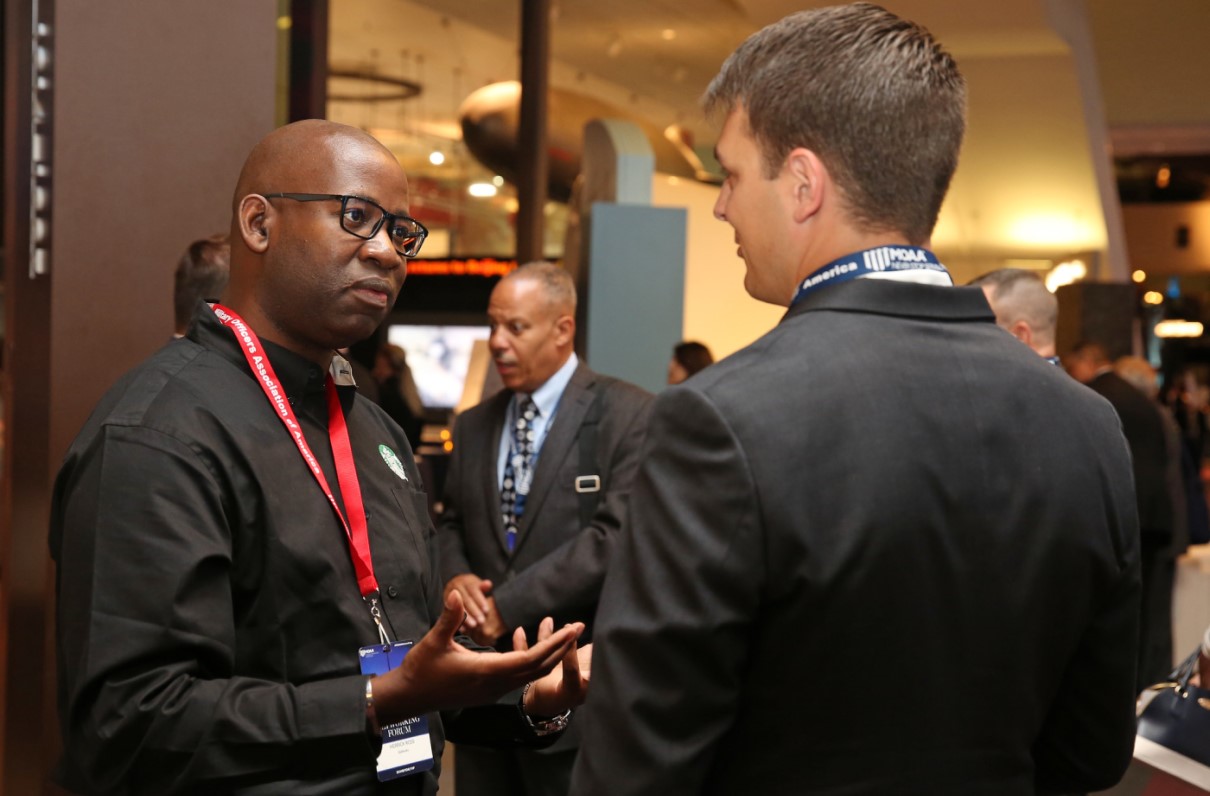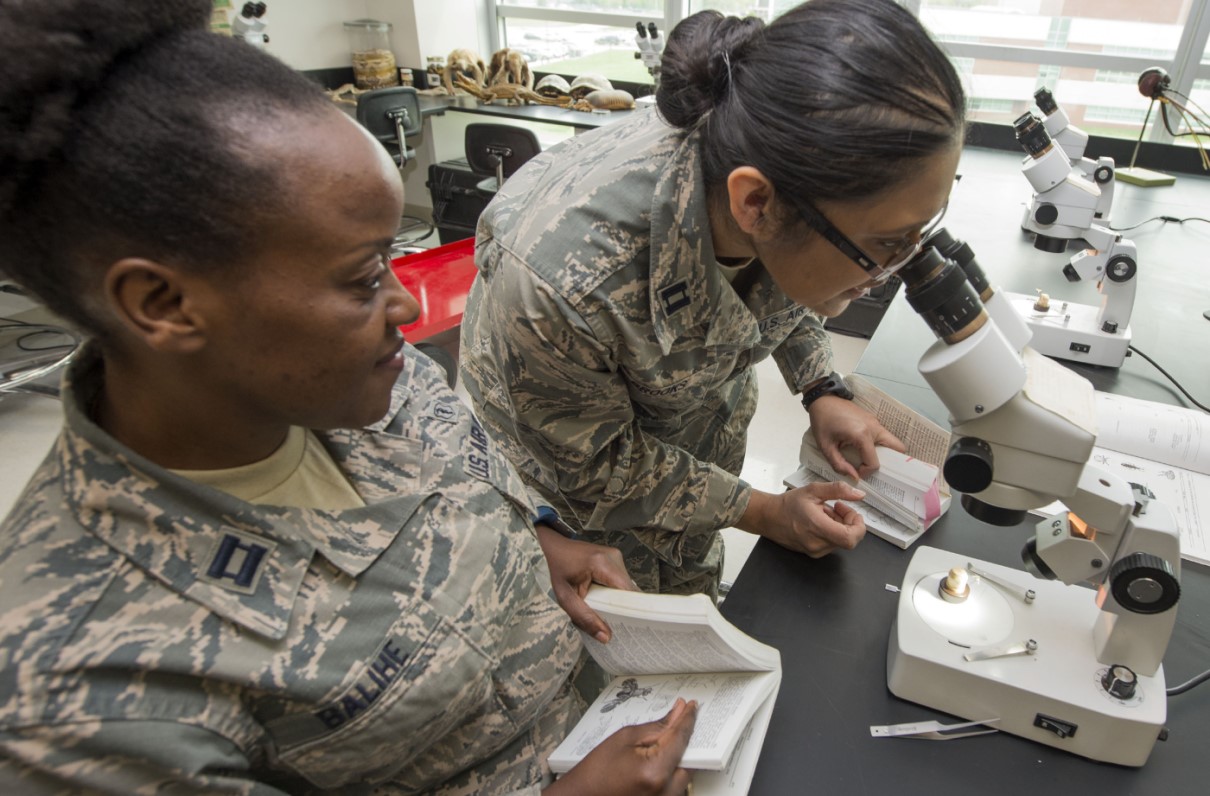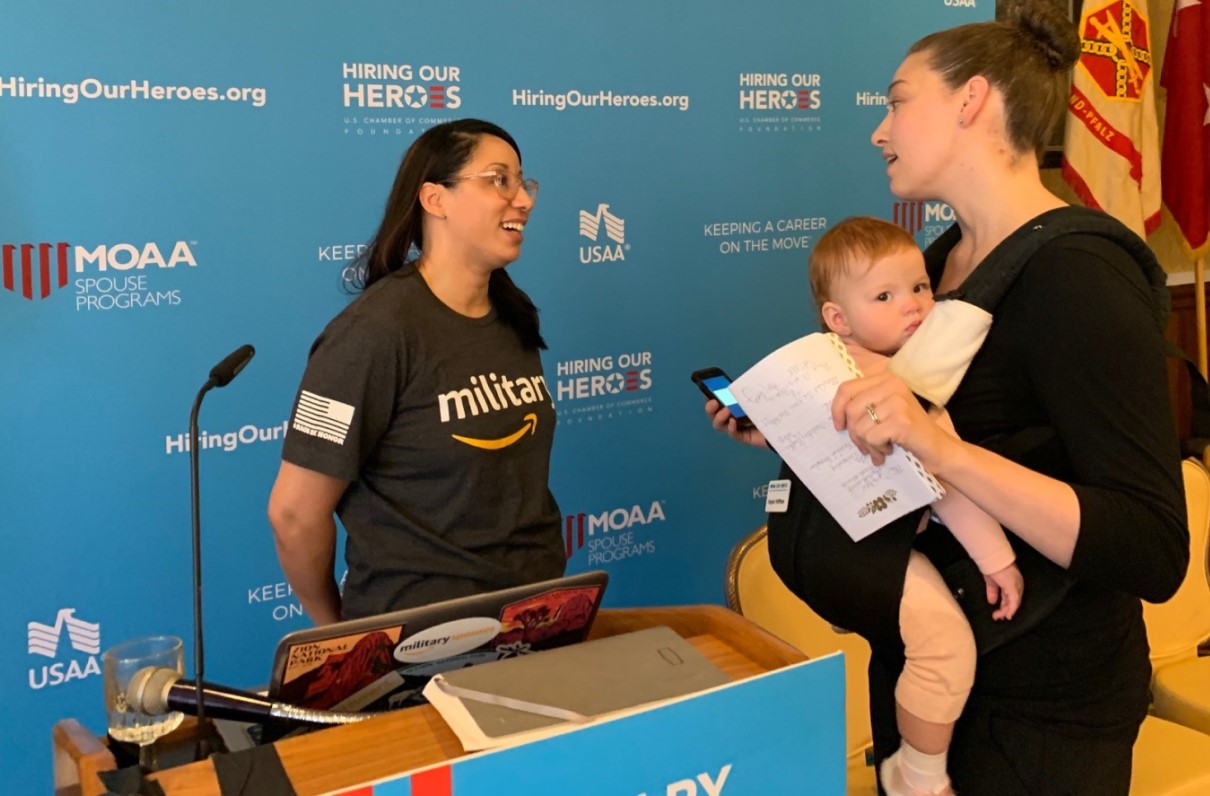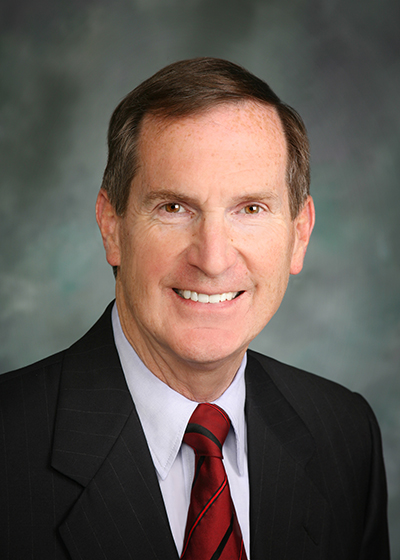With MOAA’s annual Military and Veteran Networking Forum and Hiring Event set for Sept. 19, this is a good time to review best practices for career fair success.
An executive recruiter friend of mine calls MOAA’s signature career-building event “networking on steroids.” You will connect with nearly 90 veteran- and military spouse-friendly companies and organizations, and hundreds of colleagues and mentors.
This recruiter pays particular attention to the following personal characteristics when meeting candidates: handshake, eye contact, executive presence, observation skills, and a candidate’s “willingness to have a balanced conversation.”
[RELATED: Prep for Success With MOAA’s Networking Event Checklist]
The best preparation for networking event success begins by researching the companies scheduled to attend. Learning more about your target companies enables you to better understand their career opportunities and prepares you to ask thoughtful questions. Besides reviewing the positions your target companies have posted on their websites, there are a number of excellent online sources from which to gather additional information that will mark you as a well-prepared job candidate, including:
- The Wall Street Journal
- Barron’s
- CNBC
- Aviation Week and Space Technology (for defense, homeland security, intelligence community, and aviation industry information)
- The AFCEA Source Book (or Corporate Member Directory)
- LinkedIn (use the company search function to identify new employees and current employees in your network at your target companies).
[RELATED: Join MOAA’s Career Networking Group]
Also, don’t ignore the smaller, less-well-known companies in your preparation. The majority of jobs in America are created by companies with less than 500 employees, and smaller companies may offer employees a wider range of experience, greater access to senior people, and more influence on the direction of the organization.
Next, give some thought to how you will introduce yourself to recruiters. Often called the “30-second commercial,” it’s designed to draw the recruiter’s attention to your most compelling strengths and achievements. Your 30-second commercial should clearly express your employment goal; review your education, qualifications and experience; and highlight specific aspects of your résumé that meet the needs of the employer as gleaned from job postings, websites, and networking with current employees. If this information is not available, then ask the recruiter some basic questions early in the conversation:
- What types of positions are you seeking to fill?
- Is the need immediate, or are you looking to hire for future needs?
- What are the toughest positions to fill?
- Can you describe your ideal candidate?
Make your 30-second commercial positive and upbeat – even if you are leaving your last employer because of a missed promotion or a conflict with a senior. Always highlight your greatest strengths, never make excuses, and always emphasize your enthusiasm, adaptability, and loyalty.
Your résumé will be your calling card at MOAA’s Networking and Hiring Event, and you should not attach a cover letter. Bring twice as many résumé as there are companies participating in the job fair, and consider preparing both a networking résumé – a document that’s more generic – and a job-specific résumé tailored to match the job requirements uncovered during your pre-event research of your target companies. One page of résumé for every 10 years of work history is a good policy.
What’s the worst thing you can do at a networking event? Again, in the recruiter’s words: “Grammatical errors on the résumé; also, poor grooming and a lack of eye contact.”
[RELATED: 5 Reasons You Should Register, in Advance, to Attend MOAA’s Annual Networking Forum]
To this I would add, optimism and vision are two of the most important qualities to demonstrate when you’re introducing yourself to a recruiter or hiring manager: Optimism because all senior leaders have a duty to be optimists, and vision to identify challenges and imagine how you can add immediate value to your next employer.
Approach recruiters and hiring managers with no remorse for the past, confidence in the present, and full of hope for the future.




